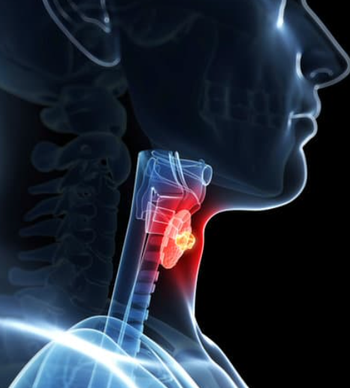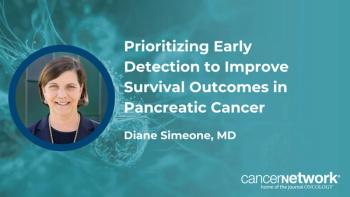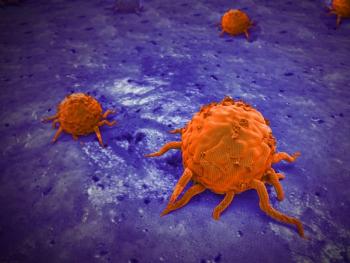
- ONCOLOGY Vol 13 No 9
- Volume 13
- Issue 9
Book Review:Nutritional Oncology
Nutritional Oncology provides acomprehensive review of the current scientific literature on nutritional factors affecting the prevention and treatment of cancer. The book’s primary objective is to detail findings in the new field of nutritional oncology,
Nutritional Oncology provides acomprehensive review of the current scientific literature on nutritional factors affecting the prevention and treatment of cancer. The books primary objective is to detail findings in the new field of nutritional oncology, which investigates the nutritional components of prevention, supportive care, and therapy. The preface states: Nutritional oncology seeks to modify the environmental factors influencing genetic changes and their expression at every stage of carcinogenesis, from initiation of the cancer cell to its metastatic spread to other areas of the body.
Support for the book was provided by the Cancer Treatment Research Foundation (CTRF), an organization whose purpose is to benefit cancer patients by furthering research and promoting helpful nutritional interventions.
This book is intended to be a textbook for health care professionals. It would be appropriate for researchers, oncologists, nutritionists, and primary care providers, especially those promoting cancer prevention strategies.
The book is divided into five sections: biological principles, etiology, prevention, assessment and therapy, and clinical trials. There are 46 chapters in all, written by a total of 78 contributors, each of which is a distinguished expert in the field. This format, with organization into sections and chapters, provides easy access to information.
Chapter topics include individual types of cancer; specific nutrients; the carcinogenic process; epidemiology; and the nutritional concerns of the cancer patient. Each chapter is extensively referenced at its conclusion. There are no appendices.
Although the overall appearance of the text is attractive, it is published entirely in black and white and has no photographs. However, the book does include a number of clear figures and tables.
This is an outstanding book that accomplishes its objective of detailing the scientific literature on nutritional factors affecting the initiation, growth, and outcomes of cancer. It will serve as an exceptional tool for clinicians and researchers.
Overall, Nutritional Oncology is well written, but some chapters lack careful editing. Spelling errors have been missed in several places(for example, see chapter 30). At least one textual error in chapter 1 completely omits a section on vitamins as an essential nutrient.
Given the wealth of material presented and the format of completely discrete chapters each written by a different author, the book might have benefited from a final section in which the editors comments, opinions, and, possibly, recommendations were shared. Readers hoping to apply the information to their clinical practice will be left with questions on how to proceed.
Articles in this issue
over 26 years ago
Lowering Drug Prices for Non-Medicare Patientsover 26 years ago
Paclitaxel Improves Survival in Metastatic Breast Cancerover 26 years ago
FDA Plans Crackdown on Online Drug Salesover 26 years ago
p53 Gene Therapy Shows Activity Against Head and Neck Cancerover 26 years ago
OTC Analgesic Gel Treats Oral Ulcers in Chemotherapy Patientsover 26 years ago
September Is Gynecologic Cancer Awareness Monthover 26 years ago
Improving the Chemotherapy Experienceover 26 years ago
Chemoradiation an Effective But Toxic Therapy for Colorectal Cancerover 26 years ago
Oncologists Likely to Get Small Medicare Increasesover 26 years ago
Global Progress: Breast Cancer MortalityNewsletter
Stay up to date on recent advances in the multidisciplinary approach to cancer.



















































